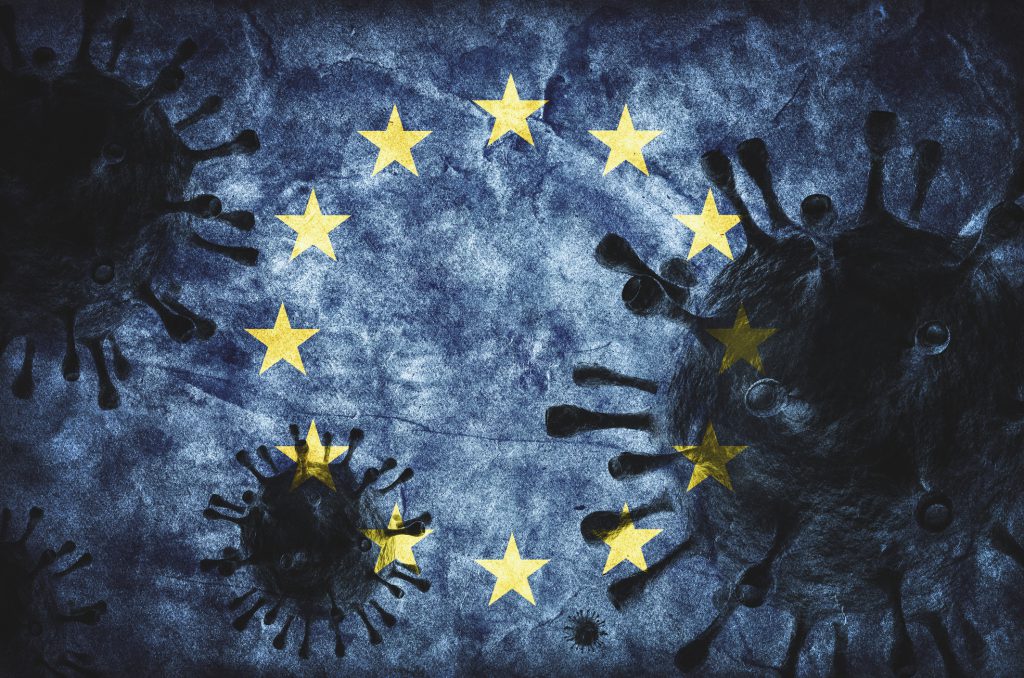87% of the Maltese think EU should have more say in handling Covid-19

Nine out of every ten Maltese citizens believe that the European Union should have more competences to deal with the Covid-19 pandemic. The figure (87%) is significantly higher than the EU average which stands at two thirds.
These trends emerged from the third annual survey carried out this year by the European Parliament which focused on the coronavirus crisis and citizens’ attitude towards the EU.
Although 50% of Europeans feel ‘uncertainty’ again as their key emotional state as the economic impact of the pandemic takes its toll, more people now have a positive image of the EU than in the Spring.
In Malta this is reflected, with uncertainty being the dominant sentiment for 44%, and whilst the positive image of the EU went down two points, it is equal to the rising EU average.
Spending priorities
The majority of respondents (54%) think that the EU should have greater financial means to tackle the consequences of the pandemic. In Malta, public opinion is more strongly in favour of this, rising seven points to 69%.
However, it is of the utmost importance to EU citizens that EU funds only go to Members States with a functioning judicial system and a robust respect of shared European democratic values. More than three-quarters of respondents (77%) agree that the EU should only provide funds to Member States conditional upon their government’s implementation of the rule of law and of democratic principles. Even more Maltese agree with this (79%).
Public health should be the key spending priority for 54%, followed by economic recovery and new opportunities for businesses (42%), climate change and environmental protection (37%) as well as employment and social affairs (35%).
At 58 %, Malta ranks seventh amongst the 18 Member States where respondents consider public health the highest spending priority with respect to the EU budget. Furthermore, Malta ranks the least likely (at 25%) to favour spending on economic recovery and new opportunities for businesses, followed by Luxembourg at 29%.
The proportion of Maltese that think employment and social affairs should be a spending priority has increased since by 6 percentage points since the second wave of this survey in July.
Attitude improves, but more solidarity needed
Attitudes towards the EU have become more positive in comparison with the first survey in April/May this year. The proportion of respondents who hold a positive image of the EU has increased steadily, from only 31% in April 2020 to 41% in the present survey.
However, a majority of respondents remain dissatisfied with the solidarity, or lack thereof, between EU Member States. This is not the case in Malta where a majority of Maltese (52%), as well as Irish, Lithuanians, and Portuguese, are satisfied with the solidarity among Member States in fighting the coronavirus.
62% of Maltese satisfied with government’s handling
Around half of the respondents (49%) say they are satisfied with the measures their government has taken so far against the coronavirus pandemic, while a similar proportion (48%) are not satisfied. Attitudes have become more negative since the last wave of the survey, with a fall in satisfaction with government measures. In Malta, where satisfaction is above the EU average at 62%, it has also decreased as it has in 25 out of 27 Member States, with the only exceptions being Sweden and Italy.
EU-wide, more than a third of respondents (39%) say that the COVID-19 pandemic has already impacted on their personal income – this figure is higher in Malta at 43%. A further 27% say that they expect such an impact on their finances in the future, with 23% of Maltese expecting this.
Overall, young people and families with children seem to be the worst hit by the crisis: 64% of citizens between 16 and 34 years have experienced some form of financial difficulties. In the case of respondents with children, 27% have used their personal savings sooner than planned. In five Member States (Cyprus, Greece, Spain, Romania, and Bulgaria) more than half of respondents say that the pandemic has already affected their personal income.
